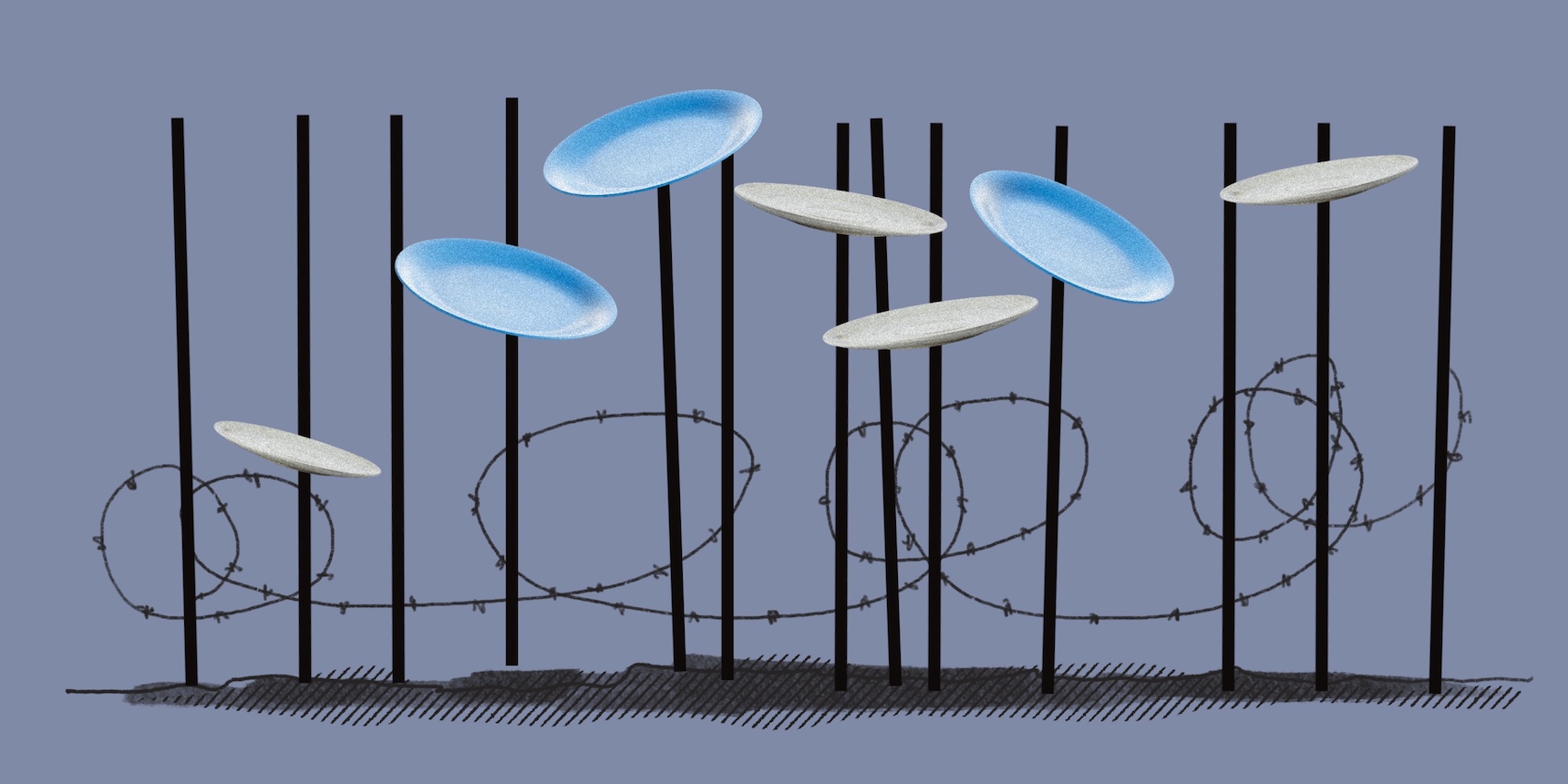
The European Union’s expansion has long been a process characterized by hope, ambition, and a strong commitment to the principles and standards set by the bloc. The recently adopted 2023 enlargement reports by the European Commission represent a significant milestone in evaluating the progress and potential accession of several aspiring nations. Notably, the Commission recommends initiating accession negotiations with Ukraine and Moldova, while linking a similar process for Bosnia and Herzegovina to specific criteria. Additionally, Georgia has been granted candidate status, reflecting progress in that direction. Understanding the procedural roadmap and requirements for attaining candidacy status sheds light into the complex journey these nations undertake.
The key to the accession process is meeting the Copenhagen criteria, which are benchmarks set by the EU. These criteria encompass political stability, the rule of law, human rights protection, a functioning market economy, and the ability to adopt and implement EU laws and regulations.
Once an application is received, the European Commission conducts a thorough assessment of the applicant country’s progress in meeting the Copenhagen criteria. This evaluation encompasses multiple facets of governance, economics, and societal norms to ensure alignment with EU standards.
Countries that demonstrate successful adherence to the criteria receive a recommendation from the European Commission to begin accession negotiations. This phase involves detailed discussions and negotiations between the EU and the candidate country on various policy areas, alignment of national legislation with EU laws, and addressing specific challenges or concerns.
Attaining candidate status signifies progress toward meeting EU norms and values. The recent recommendation for Georgia to obtain candidate status reflects recognition of strides made toward EU integration.
The European Commission’s evaluation of Georgia’s progress toward EU integration highlights significant steps taken towards candidate status. It acknowledges Georgia’s accomplishments in meeting three out of twelve priorities, leading to a recommendation for candidate status. These achievements include advancements in gender equality, judicial reforms that align with European Court judgments, and transparent public defender appointments. However, the path to full candidacy involves tackling challenges like disinformation, aligning with EU foreign policy, and strengthening democratic institutions to ensure fair elections.
The Commission’s recommendations identify areas that require improvement for Georgia’s candidacy. These areas include addressing political polarization through collaborative legislative efforts, ensuring fair electoral processes, and comprehensive judicial and anti-corruption reforms. The EC’s analysis acknowledges Georgia’s progress, but also highlights persistent challenges. These challenges include political tensions that impact national reforms, as well as restrictions on freedom of expression and assembly. The media landscape in Georgia remains vibrant but polarized, and while anti-corruption efforts show promise, further action is needed. Georgia’s commitment to regional cooperation and alignment with EU standards necessitates sustained efforts to meet the EU’s expectations in various sectors for closer integration.
In summary, Georgia’s journey towards EU candidacy has seen both achievements and ongoing challenges. While there has been notable progress, it is crucial for Georgia to address political tensions, implement comprehensive reforms, and align with EU values.
Eastern Partnership Was a Foot in the EU’s door
Armenia, Georgia, Ukraine and Moldova embarked on this journey together by becoming member states of the Eastern Partnership (EaP) in 2009. The EaP was designed to foster closer ties between the European Union and its Eastern European neighbors, including Armenia, Georgia, Moldova and Ukraine. The partnership aimed to strengthen political, economic, and societal relations, offering these countries the prospect of closer integration with the EU through various cooperation frameworks and agreements.
However, in 2013, Armenia’s decision not to sign the Association Agreement with the European Union marked a turning point. This choice was influenced by several factors, including Armenia’s historical ties with Russia and its dependence on the Russian-led Eurasian Economic Union. Instead of signing the Association Agreement, the Armenian government opted to pursue a closer partnership with the EAEU. As a result, the EU had to adjust its approach towards the Eastern Partnership countries.
The EU responded by adopting a differentiated approach, recognizing the diverse aspirations and priorities of each Eastern Partnership state. This approach acknowledged that these nations had varying levels of readiness, interests, and geopolitical affiliations. The EU then began tailoring its engagement and offers to each country based on their individual preferences and commitments. For example, Georgia, Moldova, and Ukraine expressed a strong desire for closer integration with the EU. They signed Association Agreements and Comprehensive Free Trade Agreements (AA/DCFTA) with the EU, signaling their commitment to deeper political association and economic integration.
Although Armenia did not sign the Association Agreement, it maintained its engagement with the EU through an alternative framework. Instead, Armenia pursued a Comprehensive and Enhanced Partnership Agreement (CEPA) with the EU, which represents a more limited but still significant cooperation framework in comparison with the Association Agreement.
The EU adopted a differentiated approach that aimed to respect the sovereignty and choices of each country in the EaP. This approach allowed for tailored engagement strategies that recognized the varying degrees of readiness and geopolitical complexities among these states. It allowed for tailored engagement that respected the distinct aspirations of each nation.
What Does Armenia Want?
Armenia’s geopolitical position has received considerable scrutiny and adjustment, especially in the aftermath of the 2020 Artsakh War. The conflict had significant implications for Armenia’s regional standing, security, and geopolitical alliances. While Armenia has faced challenges, particularly with Russian involvement during the conflict, it hasn’t explicitly declared a drastic shift in its foreign policy orientation similar to what Georgia pursued after losing Abkhazia and South Ossetia.
Armenia has had a multifaceted relationship with Russia, characterized by historical, political and security ties. Russia has traditionally been seen as a security guarantor for Armenia, especially due to the presence of Russian military bases and security agreements between the two countries. However, during the 2020 war, Armenia found itself in a complex situation where its reliance on Russia’s security guarantees didn’t prevent significant losses in the conflict. As a result, some segments of the Armenian population became disillusioned.
Unlike Georgia, which pivoted towards a more Western-oriented trajectory after losing control over Abkhazia and South Ossetia, Armenia hasn’t undergone an explicit and radical geopolitical shift. Instead, Armenia’s position seems to involve recalibration rather than a complete reorientation of geopolitical alliances.
Armenia appears to be seeking a more cautious approach in its foreign policy. It aims to maintain friendly relations with Russia while also engaging with other regional and international actors. It seeks to diversify its partnerships to reduce dependency on any single country and explore opportunities for economic cooperation, security collaboration, and diplomatic ties beyond its traditional alliances. Regional stability and security is critical for Armenia as is economic diversification. Seeking partnerships and investments from multiple sources could strengthen its economy and reduce vulnerability to geopolitical fluctuations.
It’s unclear whether Armenia will follow the same path of neighboring countries in seeking EU candidate status. Armenia has taken a cautious approach in its geopolitical decisions, refraining from making any explicit announcements of a significant shift in its geopolitical orientation. While some may wonder if Armenia will be influenced by the neighboring nations’ pursuits of EU candidacy, the country seems to pursue a balanced foreign policy that takes into account regional dynamics. The complexity of Armenia’s historical ties, security agreements, and recent conflict suggests that any decision regarding EU candidacy will likely involve nuanced consideration and a careful reassessment of its strategic interests.
Recently published
World Court Slaps Azerbaijan With New Measures
The ICJ handed down provisional measures against Azerbaijan, demanding that Azerbaijan ensure the rights of Armenians forcibly displaced from Nagorno-Karabakh, including their right to return. This article breaks down the significant pronouncements made by the Court and explores their potential impact on Armenia’s legal strategy.
Read moreArtsakh Heritage: What Is Happening to Nagorno-Karabakh’s Armenian Monuments
Following Azerbaijan’s ethnic cleansing of Artsakh, the issue of the preservation of Armenian monuments has again become a hot topic. EVN Report spoke with Simon Maghakyan, an academic and investigative researcher to provide updates and insights.
Read moreArmenians of Jerusalem: Facing an Existential Threat
Are the future prospects of the Armenians in the Holy City, whose rich heritage is a cherished part of the diaspora, doomed? Despite their presence in Jerusalem dating back to the 4th century AD, during the early days of Christian pilgrimages, the current situation poses a significant threat.
Read moreBetween Ownership and Neglect, Part 2: Aram’s House
The home of Aram Manukyan, widely recognized as the founder of the First Armenian Republic, located on 9 Aram Street in downtown Yerevan, continues to be abandoned and dilapidated and its future uncertain.
Read moreLiving in Russia’s Long Shadow
Armenia’s recent turn away from Russia has sparked European hopes that the country could finally join the West. But that’s not the whole story. Karena Avedissian explains.
Read more





